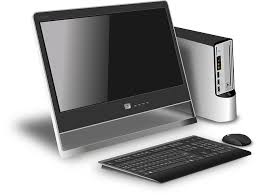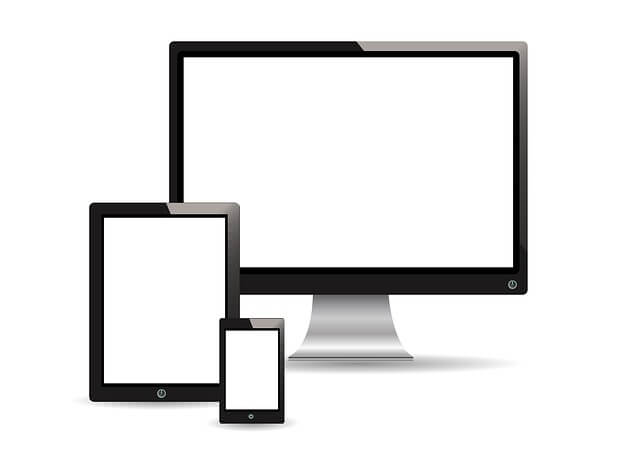Most of us are stuck with the idea that computer is an electronic device which takes in some input and delivers an output accordingly. Well there is nothing wrong in that but the entire input-output thing involves a lot of functioning in between.
It is so complex that as you keep on learning about them you can never stop appreciating the beauty of computers. Anyway, do you know? Any device which consists of a microprocessor to take care of the functionality can be called a computer.
This is Why and How Computers Are Classified:
Like we mentioned if every device consisting of a microprocessor is a computer then there must be a certain basis in which we should be able to differentiate them. So don’t worry to get you out of that inconvenience, researchers have been good enough to list them separately into different types.
And the most fundamental factors on which these classes are made is the size, performance and also their purpose.
Here is the All Computer Types List:
- Desktops:
 Desktops are the computer types which are not portable. They have to be fixed at a place and it becomes the permanent location. But notably these computer types cost less for the same features (power, storage etc.) than the portable computers.
Desktops are the computer types which are not portable. They have to be fixed at a place and it becomes the permanent location. But notably these computer types cost less for the same features (power, storage etc.) than the portable computers.
Also See: Best Business Desktops For Your Office
Also See: 10 Best Gaming Desktops
The more powerful desktops are the Workstation Computers used in game developments and higher graphics designing.
- Notebooks:
 Most commonly known as laptops, these computer types are the portable ones. Call it an ultrabook, notebook or a zenbook all refer to the same class of portable computers.
Most commonly known as laptops, these computer types are the portable ones. Call it an ultrabook, notebook or a zenbook all refer to the same class of portable computers.
In these devices the basic hardware (like mouse, keyboard) are all integrated and made a single structure.
- Netbooks:
If the notebooks are simply portable, the netbooks are the ultra-portable computers. They are said so mainly because of their dimensions and the so less kgs they weigh. Also the other important point here is they cost lower than any other laptops.
But the small downside in these computer types is that they are powered with not-so-powerful processors. And the less weight and cost means that these computers omit the Hard Disk Drives and the Ethernet ports.
- Personal Digital Assistants:
 The Personal Digital Assistants (PDAs) or the palm-top computers are now popularly known as smart phones. These are very compactly integrated computers with mobile phone functionality.
The Personal Digital Assistants (PDAs) or the palm-top computers are now popularly known as smart phones. These are very compactly integrated computers with mobile phone functionality.
They employ different touch screen technologies and store data in memory cards replacing external keyboards and the Hard Disk Drives respectively. These computers are well designed to ease up wireless and wired connectivity.
- Servers:
 As the name suggests, these computers are built to provide valuable services to all the other computers over that particular network.
As the name suggests, these computers are built to provide valuable services to all the other computers over that particular network.
These computers posses high end technologies and employ large hard drives. In companies like Facebook where there are a lot of transactions from time to time, the size of the server could stretch over a few buildings.
- Supercomputers:
 Supercomputers maybe single computer systems or a group of high-end computers working together as one single computer. This computer types posses the ultimate processing capabilities.
Supercomputers maybe single computer systems or a group of high-end computers working together as one single computer. This computer types posses the ultimate processing capabilities.
Their applications include weather forecasting, 3D Nuclear Test Simulations, aerodynamic research etc. PARAM 8000 built in 1990 is considered to be India’s first supercomputer.
Also See: Basic Introduction To World Of Supercomputers
- Wearable Computers:
The Wearable Computers are the latest trend of computers. Thanks to all those researchers for making our lives easier in ways we didn’t even think about. These computers are integrated into all our surrounding.
